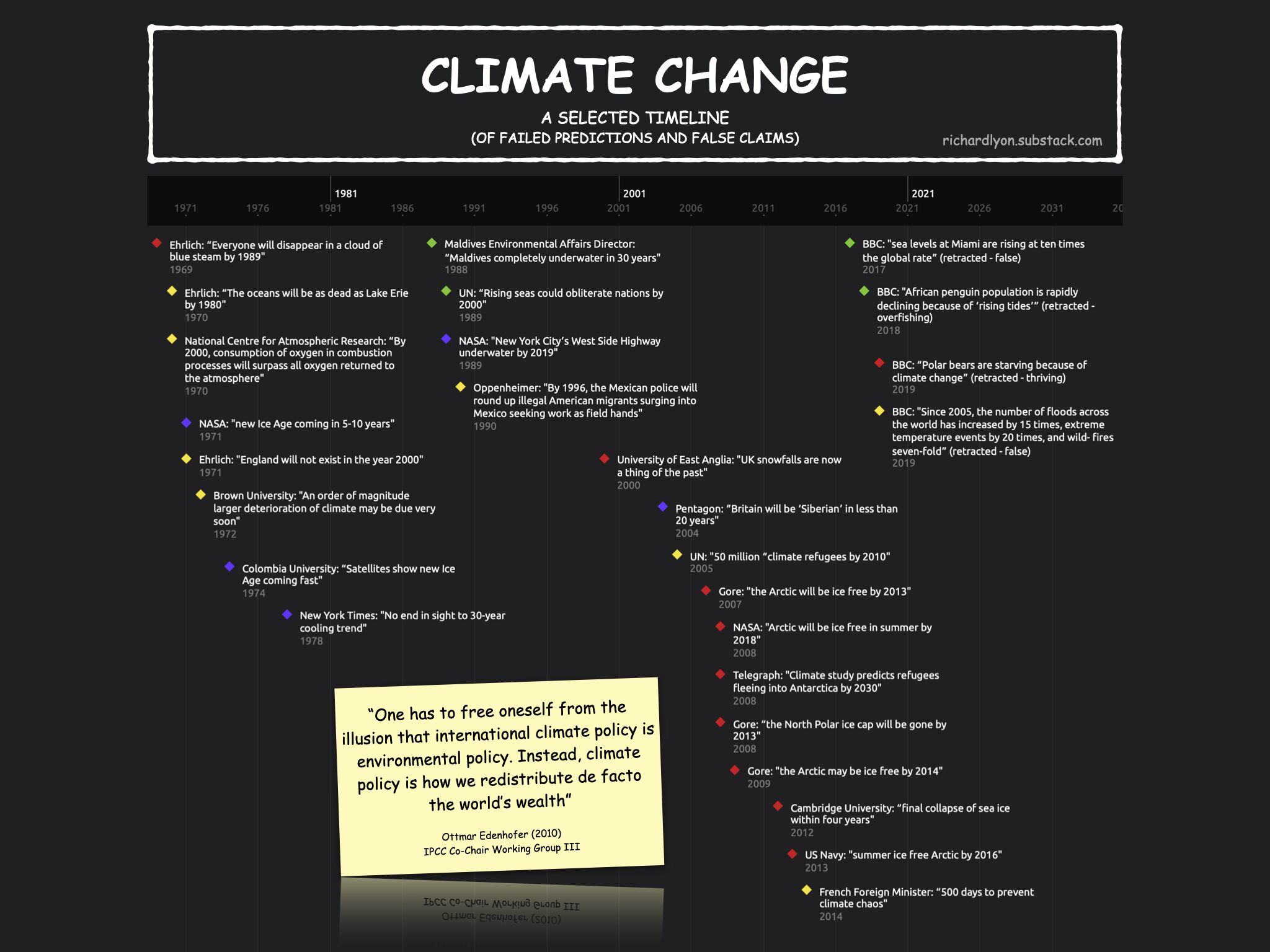Climate | Not even wrong
Why Climate Science Is Not Even Wrong
- Date
-
 Richard Lyon
Richard Lyon
The persistence of “renewable” technology energy policy, pitched as a necessary solution to lurid predictions of catastrophic changes in our climate supposedly caused by our CO2 emissions, is puzzling in the face of the startling track record of the failure of those predictions.
Climate physics modellers, endlessly refitting their models to accommodate the next tranche of falsifying observational data, claim that these failures are insignificant tuning issues. Policy makers accept this excuse.
They aren’t, and they shouldn’t. This post examines why, by comparing these attempts with modelling of another complex physical phenomenon - oil field physics - which yields remarkably accurate predictions.
To predict the future state of a complex system driven by multiple physical phenomena, three conditions must be met: all of the significant phenomena driving the system must be identified; their physics must be understood; and the system must be capable of being rendered computationally.

A small selection of failed predictions of climate disaster
Each of these conditions is met in oil field modelling. None are met in climate modelling.
Dozens of disparate physical phenomena contribute to the progress of a compressible viscous fluid through a porous, permeable medium under the influence of gravity and pressure. We know, and understand, them all. The system is free of feedback loops, so is computationally tractable.
The climate catastrophe narrative focuses on the last 100 years because the other 70 million years of climate history is characterised by variability that dwarfs recent changes, caused by observable but unidentifiable drivers. Celestial mechanics? Upheavals in the earth’s molten core? Something else? Who knows. And if you don’t know what it is, you can’t model it.
It focuses on the 4% of annual CO2 we produce, because CO2 physics is easy. But, for example, where and under what conditions clouds form, a significant driver of heating - and cooling - is ignored in their models because their microphysics are still not understood.
And even if they knew the drivers, and driver physics, they can’t with current computational methods model a system that is inherently and chaotically non-linear.
An overfitted, short timescale correlation between two properties is not a model of the climate. And since it doesn’t model the climate, its predictions are meaningless.
A signature feature of pseudosciences like astrology is the volume of excuses they must generate to explain the failure of their core propositions to explain or predict observable reality. In most cases, they are just a harmless amusement.
But there’s nothing harmless, or amusing, about the renewables policies produced by the pseudoscience of long range climate prediction. A global financial collapse will kill hundreds of millions through poverty, malnutrition, and disease. That collapse is a growing possibility. And it’s the unavoidable outcome of renewables policy.
It’s reckless, and must be abandoned.